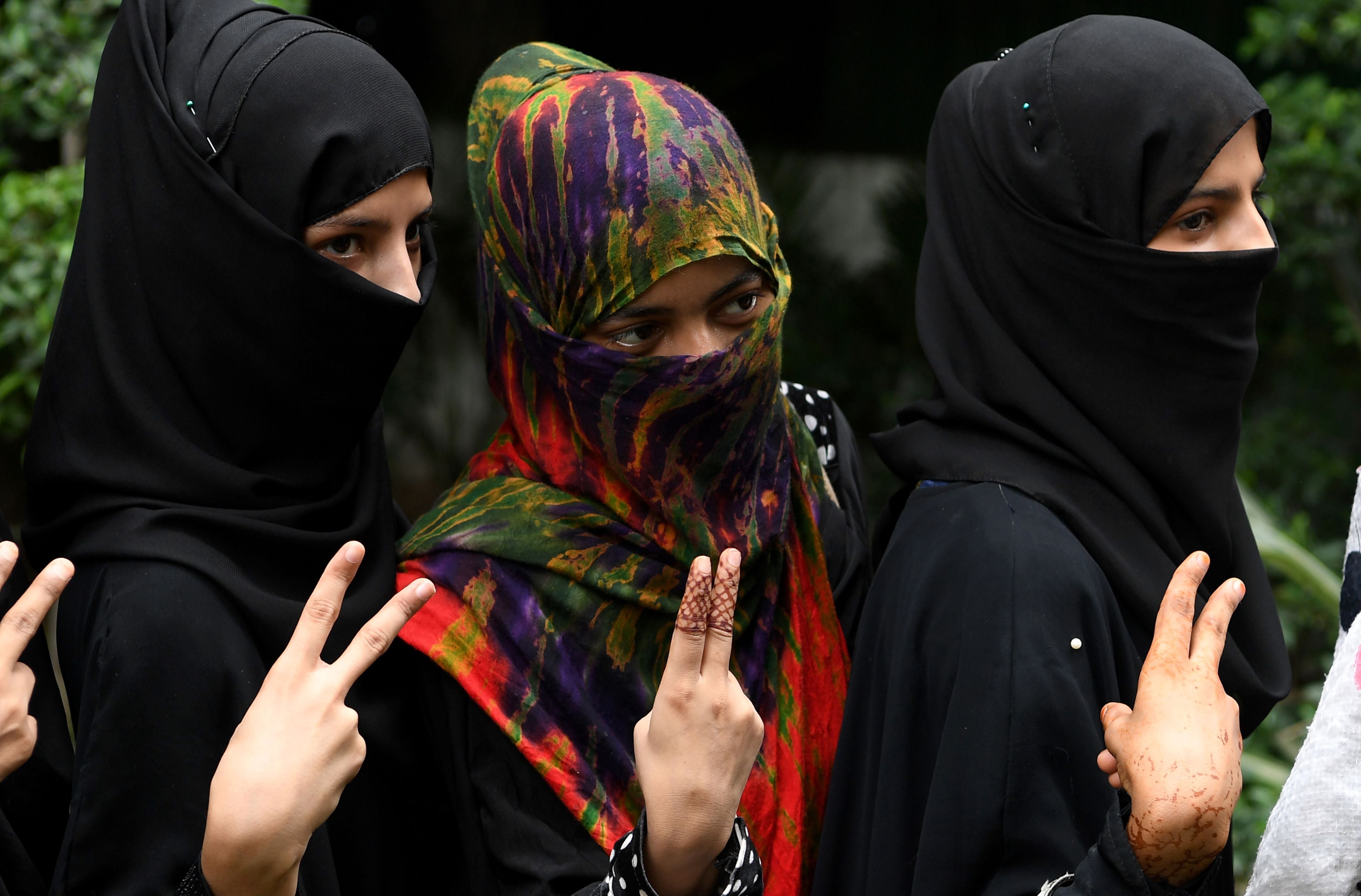Sulli Deals: How dozens of Muslim women in India found themselves getting ‘auctioned’ online
Victims of online harassment campaign tell Stuti Mishra they are used to being abused by Twitter trolls – ‘but being commodified... this was really new’


Nabiya Khan, 25, was scrolling through her Instagram on a typical Monday night when she first came across a post about a website “auctioning” Muslim women online in India. Already horrified by this news, when she checked for more updates her heart skipped a beat – there was her profile, including her photos and personal details, posted on the new platform.
The website and app called “Sulli Deals” was created on the hosting platform GitHub and asked users to click a button to generate the “deal of the day”. Every time the user clicked, the website generated a new result out of the dozens of profiles apparently created from publicly available photos of real Muslim women, without their consent.
“To my shock, but not surprise, my name was also there [on the website] and that app had our pictures and names,” Khan tells The Independent. “It said it was a ‘community driven open source project’ and we were basically getting auctioned off, by men.”
At no point did the Sulli Deals website actually allow money to change hands, but for its victims the purpose was clear: to publicly shame Muslim women. The origin of the word sulli is hard to pin down, but it is a derogatory term familiar to India’s Muslim netizens, who say it is derived from mullah (a learned Muslim) and used by online trolls in order to avoid being censored.
As an outspoken Twitter user and protest poet, Khan is all too familiar with this kind of targeted harassment; she says she often faces abuse online and gets attacked with a range of slurs based on her religious identity. This time, however, she feels it went too far.
“Abuse is not new for me, but being commodified... this was really new,” she says, describing the incident as the latest development in the rise of Islamophobia in India.
A 2020 report by the US Commission on International and Religious Freedom linked this to Narendra Modi’s second election victory in 2019, saying that his Hindu nationalist BJP used its increased majority to institute policies violating religious freedom across India, especially for Muslims. The Indian government has called the commission “biased” and dismissed the report as “a new level of misrepresentation”.
Delhi-based journalist Sania Ahmad realised she was on Sulli Deals when she was tagged on Twitter in a post showing screenshots from the website.
She tells The Independent that one of the anonymous accounts promoting the website on Twitter was also directly sending her “graphic, violent tweets and comments” and had her photo as its header image. “I posted a screenshot of this person's bio to ask people to report,” she says.
GitHub – the web platform that was used to create the open source app – shut it down after receiving complaints, citing its guidelines against harassment. “We suspended user accounts following the investigation of reports of such activity, all of which violate our policies,” the company said in a statement.
Ahmad says she recognised the accounts involved as they have repeatedly subjected her to harassment on Twitter in the past. “I knew this entire ecosystem, I knew the kind, the handles that were part [of it] and throughout I had been reporting them again and again, but Twitter had not taken any action against them.”
She says that prior to this latest incident, the trolls had indulged in similar activities on Twitter. She says they used to “run these horrific polls and send me very graphic abusive posts like, ‘which of these [names of two women] would you want to include in your harem?’
“And then another person responded, saying ‘why do you want to include them in your harem, just f*** them and dump them and chop off their heads and decorate your living room walls with it’.”
Khan says this kind of hate has become increasingly mainstream in India in recent years, citing an incident this month where a Hindu counter-protester “called on people to rape Muslim women” at a Mahapanchayat (a village gathering led by local leaders) in Haryana.
“It is working on every level and there is no accountability,” she says. “Sulli Deals was a product of this hate.”
After days of online outrage and demands for stricter action, police in Delhi registered a case of sexual harassment last week against the still anonymous creator of the website and app. The government’s National Commission for Women has also said it is looking into the incident. The victims, however, say they do not have high expectations for any kind of justice.
Ahmad says she has gone to the police over online harassment before, but her complaints have never even been registered as an FIR (a First Information Report, used by police in India to file the opening of a case or investigation).
“I don’t think they’re equipped to handle such cases, because they did not know [about] something as simple as archived tweets,” she says. “So this time I don’t know. I don’t want to be too optimistic, but I don’t want to be too pessimistic either. I’m just keeping my fingers crossed for the best possible results.”
Ahmad also criticised Twitter, saying trolls who attack Muslim women in India face little action. “They either don’t [even] take down the tweets, or [if they do] they lock the accounts for 12 hours and then they can come back.”
She says she previously sent a legal notice to Twitter demanding better accountability from the platform and prompt actions over this targeted harassment. “We realised that it is important for us to hold Twitter liable,” she says. “It is Twitter’s responsibility to ensure that it maintains a safe space for all women.”
Twitter told The Independent it had seen a significant increase in the number of accounts “actioned for violations of our abuse policy” in its latest transparency report.
“We have actioned several tweets and accounts, in line with our range of enforcement options, that were engaging in targeted harassment and attempting to harass and intimidate women,” a Twitter spokesperson said, adding that the platform has “introduced multiple Twitter features to make the experience more positive, safe and healthy”.
Join our commenting forum
Join thought-provoking conversations, follow other Independent readers and see their replies
Comments